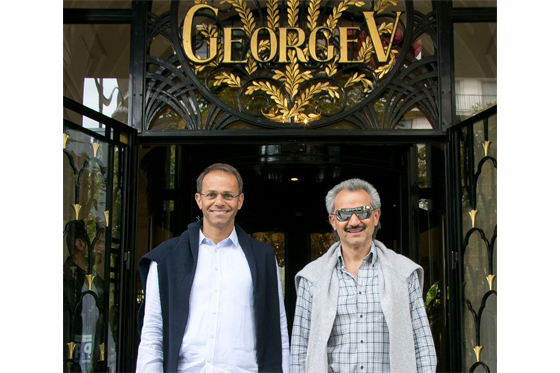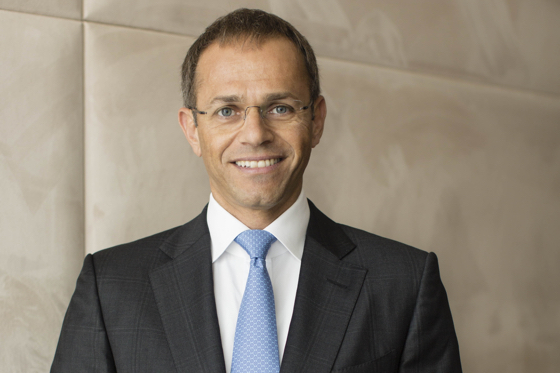When the Accor-FRHI Holdings deal closes next year, the makeup of Accor’s ownership will take on an interesting new dynamic with sellers the Qatar Investment Authority (QIA) and Saudi Prince Alwaleed’s Kingdom Holding Co. (KHC) taking seats at the boardroom table with their new 10.5% and 5.8% capital shares, respectively.
The deal in excess of US$3 billion (115 hotels and 43,000 rooms) also signals that Accor has become a player to watch as predicted industry consolidation becomes more of a reality. Accor Chairman and CEO Sébastien Bazin’s transformation of the traditional Franco-French company is ongoing and now he will have the support of two very shrewd and engaged global developers.
HOTELS last Friday spoke to Kingdom Hotel Investments CEO Sarmad Zok about Kingdom’s decision to sell FRHI and the new role it will play as one of Accor’s biggest shareholders.
HOTELS: Do you think this is Accor’s last big deal during this cycle?
Sarmad Zok: I would be very disappointed if this transaction is one that will lead us to say Accor is done. I see this as a step into further activity by Accor in the sector.
H: What do you make of the new flurry of M&A?
SZ: We are in a time where lodging consolidation is happening. It is now an event. It would be not be surprising that the current top 10 lodging organizations would go down to three in the next three or four years. In this process of consolidation, there is going to be a separation of camps between the big guys and the small guys. Accor has made a statement they are going to be an active player. They are one of the big guys. Unless you are a niche operator very focused on a specific segment, a lot of these smaller listed organizations are ultimately going to fold into the larger ones. We know Accor is one of the larger ones.

H: Why did KHC and QIA sell FRHI?
SZ: It makes strategic sense. The primary reason for a transaction of this nature is it needs to be underpinned by compelling industrial logic, which was extremely compelling in this case. As a result, it provided the stage for a discussion around providing Accor access to luxury and geographic diversification. It allows us to transfer an asset that was private into something that is now part of a larger eco-system that can fulfill its potential going forward.
It’s a symbiotic arrangement that makes us a meaningful shareholder in Accor, while taking a bit of cash out, as well. It allows these luxury brands to tap into Accor’s gravitas and scale on technology and distribution. Today the industry has changed a lot as a result of technology and power is moving away from operator and products to consumers and experiences… Accor has the scale to provide all of the tools but didn’t have the luxury brands. Our brands needed access to the scale and we found the perfect marriage.
H: By taking stock KHC must have a lot of faith in Accor.
SZ: We clearly understand Sébastien’s leadership and vision. Accor today is a far more interesting organization for us because of its equity story than would have been the case previously. They have stated their aspirations to become a global player as opposed to a Franco-French midscale company. They want to expand their wings geographically and become a global player. They want to leverage their technology capabilities to grow and be an active player and driver of hospitality consolidation. That is the type of camp we like to be associated with and the kind of management team we like to back up. As a result, we take great comfort in effectively becoming one of the largest shareholders of Accor and helping that management team fulfill its ambitious plans in the same we have assisted a number of other management teams over the past 20 years in hospitality.
H: How will KHC help and what does it bring to the boardroom?
SZ: We would like to think we are an established and knowledgeable hospitality investor. We have been in the business for over 20 years globally across a number of different facets and have acquired over the years a lot of knowledge, and that knowledge in a capital intensive business is very valuable. We can share and transfer that knowledge and help make informed decisions. Having a board seat, we will be able to help design and support the strategy of the management team in considering opportunities and implementing strategic imperatives that are ultimately designed to create value for shareholders. These are complex decisions often management can initiate but with the lack of an active, interested and dynamic board can rarely implement. That is the part that excites us.
In addition, we can help directly through Prince Alwaleed and his networks. This is an individual that has proven to be at an institutional level a very well connected and respected person with access to networks that are unparalleled. The Accor eco-system has some form of indirect access to that, as well. We think we can open a few doors for Accor going forward.
H: Where would KHC like Accor to place its focus?
SZ: This transaction transforms Accor. Frankly, you cannot carry a French flag without a touch of luxury. This transaction allows them to do that in a meaningful way. We don’t have specific recommendations. We are here to support management initiatives and we are a very management friendly investor. It is clear Sébastien has clearly stated he wants to internationalize Accor, which means speaking a little bit more English than the organization currently does, and more importantly it means refining sources of EBITDA across a great geographic footprint and different market segmentations, and as the company does that it transforms. And our recommendation is please continue to do so.
H: What are the growth opportunities for the FRHI brands under Accor?
SZ: Tremendous. First they will have access to Accor’s 110 development executives. There will also be a lot of conversion opportunities within the Accor system. FHRI is a company that can more than double over the next two to three years as a result of this transaction.
H: What do you expect will happen with Swissôtel?
SZ: If you ask Sébastien what he has bought, what has transformed his business is more Fairmont and Raffles than Swissôtel. We need to give management time to see how they can optimize the value of the Swissôtel brand and system in a manner that drives and maximizes value. At this point, it is premature to comment on the outlook on that brand. It is part of the mix, certainly provides scale and will be a valuable contributor in some form and shape.

H: Where is Kingdom’s hotel strategy going?
SZ: It continues to evolve. Over the last 20 years we have acquired and traded close to 55 hotels, in addition to our interest in the three management companies. We think very long-term and will continue to hold. This is one of the reasons why in context of the Accor deal we have taken stock as we continue to be committed to that side of the business.
On the real estate front, I would break it into two pieces: the trophy, developed market assets such as George V, the Plaza and Savoy. These are long-term investments we will own forever and we continue to maximize operating performance. We have another group of assets under Kingdom Hotel Investments, which is the emerging market portfolio. Inside that we have traded and realized value in developments we have built and basically recycled capital. KHI will continue to look at ways over the next five years to realize value on some of its emerging market assets by effectively selling them. We have built in excess of US$3 billion of hotels over the years. At this point, development opportunities are less greenfield and more value enhancements to existing assets. We remain opportunistic on acquisition, but given today’s bandwidth, we can afford to be extremely opportunistic on acquisitions. We are more opportunistic than strategic, which means we are seeking special situations that create very attractive opportunities to generate higher returns than would ordinarily be the case.
H: What role did Prince Alwaleed play in the Accor deal?
SZ: This was a deal in excess of US$3 billion. At that scale, Prince Alwaleed played a meaningful role. He continues to be unique in this part of the world in the manner in which he assembles a good team around him and makes sure his capabilities are empowered as long as everyone is aligned.
This was a very interesting transaction because we have him as an individual, our partners the state of Qatar (QIA) and the French party, as well. There were some interesting social dynamics in this transaction and it was also an opportunity for us to development chemistry with the management team, and our partners to align on a common set of objectives as we advanced the dialogue. He was very involved and continues to have a personal like to the hospitality business.
H: You own George V in Paris. How is it managing through the terror attacks?
SZ: It is the world’s best hotel and we are taking advantage of the softness in business to effectively accelerate capex programs. The asset has been humming at over 90% occupancy for the last five years and as a result of the short-term dip, we are accelerating product initiatives. Paris is coming back already and the hotel continues to outperform its competitive set in a meaningful fashion, and we want to make sure it retains its position as long as we own in terms of product, people and profit.
H: You own a position of The Plaza in New York. Can you update us on the status of the asset as owner Sabrata Roy works through his legal issues in India?
SZ: The answer to that is in India. Unfortunately, I don’t have a crystal ball. We look forward to seeing what ultimately happens to our partner and the bigger game plan. We continue to be a committed investor in the hotel and look forward to some form of solution in the near term. It is an old hotel. In the scheme of things, six months or a year is the equivalent of a minute somewhere else. Sometimes these things go through challenges but only to come back stronger. The hotel is doing very well in terms of operational performance. We want to hold our stake and have Fairmont continue to manage.

